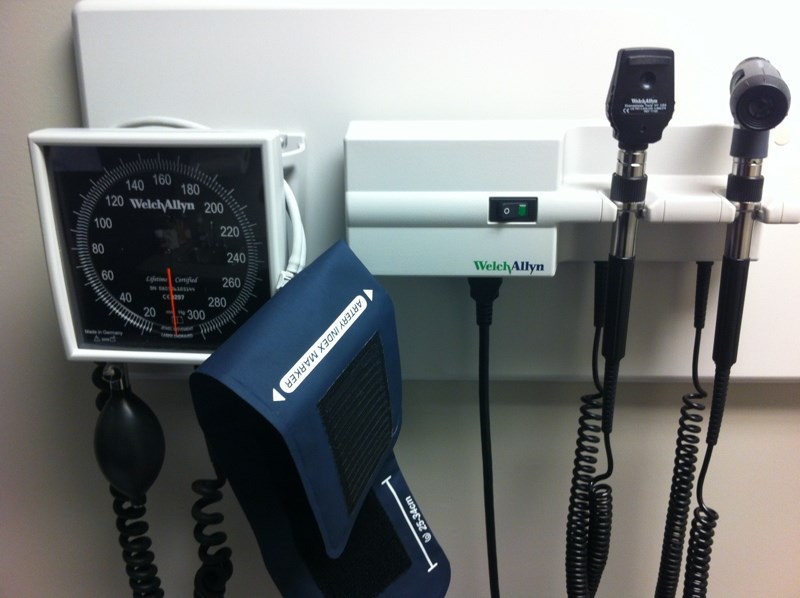VANCOUVER — A B.C. group representing Canadians who have graduated from medical schools outside Canada and the U.S. has filed a lawsuit challenging the obstacles these doctors face in competing for the limited number of residency positions in B.C. hospitals.
One of the lead plaintiffs in the B.C. Supreme Court case is a doctor who has had to work in construction and as an ICBC claims adjuster because he can’t get one of the postgraduate residency training positions in B.C. Another is a medical student who has had jobs in the film industry and walking dogs to make a living because he can’t get a residency.
The two local men went to medical schools outside of Canada. Their problem is that the system gives preference to Canadians who attend medical schools in Canada. The system is designed to ensure that graduates of Canadian schools aren’t unemployed after many years of education.
The affidavits filed by members the Society of Canadians Studying Medicine Abroad suggest they had varying reasons for heading abroad for their medical education. Some attended schools that are ranked above many Canadian medical schools in international ratings, but many underestimated the near-impossibility of returning home to practise medicine.
A former dean of the UBC medical school has even warned aspiring doctors about this herculean feat.
The president of the advocacy group is Rosemary Pawliuk, whose daughter is doing a surgical residency in the U.S. after graduating from medical school in Ireland. Pawliuk said all Canadian citizens and permanent residents should be able to compete equally for access to postgraduate training “on the basis of individual skills, knowledge and attributes relevant to the practice of medicine.”
The University of B.C. postgraduate residencies — or specialty training — are required after the completion of medical school for doctors to work here. They are funded by the provincial government.
Such training is the “gateway” to licensing as a physician here, the lawsuit said, and the College of Physicians and Surgeons of B.C. is designated as the “sole gatekeeper” under provincial legislation.
Dr. Oliver Kostanski, who grew up in Vancouver but attended medical school in Poland so he could live near his grandparents, and Harris Falconer, who has been going to medical school in Barbados, are two of the lead plaintiffs in the lawsuit. It was filed against the College of Physicians and Surgeons, the B.C. Ministry of Health, the University of B.C., the Canadian Resident Matching Service, the Health Professions Review Board and the Association of Faculties of Medicine of Canada.
They say they face many barriers to positions when they want to return to B.C. after completing medical school abroad and that such barriers violate their constitutional rights. UBC, which accepts only 10 to 15 per cent of applicants to its medical school, has acknowledged the odds are stacked against Canadians who study abroad and want to return to practice here.
The overseas graduates face an “arbitrary” quota of 58 B.C. residency positions in the first round of matching, while Canadian and American medical school graduates have “exclusive” access to 288 positions, same as the number of students admitted to UBC medical school each year, the lawsuit says.
In addition, the overseas graduates are restricted to only a few types of residencies while graduates of Canadian schools can apply for positions in 70 different specialty areas, the advocacy group says.
About 1,000 international medical graduates (both Canadians and foreigners) apply each year for the 58 B.C. positions — 52 in family medicine, and the rest in disciplines in which there are shortages: psychiatric, pediatric, and internal medicine.
This year, the process became more difficult when it was decided that only 200 international graduates would be accepted into the first step, a vetting program to demonstrate their skills are equivalent to graduates of Canadian school.
While the lawsuit has been filed in B.C., the plaintiffs’ lawyer, Brian Samuels, said the case has national significance because other provinces have similar restrictions.
None of the agencies being sued would agree to an interview.
In his affidavit, Kostanski said he chose to study at an American-affiliated medical school in Poland to be closer to his grandparents, to connect with his roots, and because tuition was cheaper than in Canada. Apart from the limited number of residency positions for Canadian graduates of foreign schools, Kostanski points out that Canadians educated aboard are required to sign a return of service contract if they are selected for postgraduate training here.



